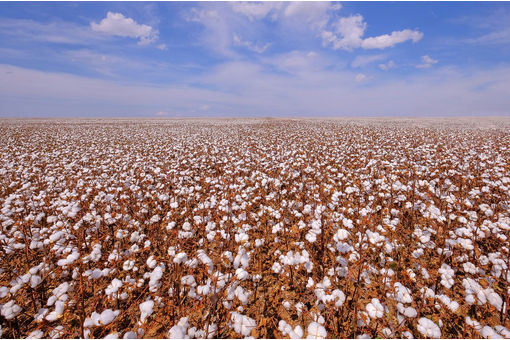Interviews
News Flash
HPPO process to boost growth of Hydrogen Peroxide market
28 Jul '08
3 min read
The Korean company SKC of Seoul has started up in Ulsan the world's first ever commercial-scale plant for production of propylene oxide by the innovative HPPO process.
The plant has an annual capacity of 100,000 metric tons. Evonik Industries, Essen/Germany, and Uhde, Dortmund/Germany, who jointly developed the HPPO process, have licensed it to SKC. Using a catalyst developed by Evonik, the process produces propylene oxide from propylene and hydrogen peroxide (H2O2). The joint venture Evonik Headwaters supplies the H2O2 in Ulsan directly “over the fence” to the HPPO plant.
New market for hydrogen peroxide
The commissioning brings Evonik a big step closer to its strategic goal of providing hydrogen peroxide in large quantities for chemical processes such as the HPPO process. Dr. Klaus Engel, member of the Executive Board of Evonik responsible for the Chemicals Business Area, says: “By targeted development of new technologies in collaboration with proven and expert partners, we're opening up an attractive new market for hydrogen peroxide.”
He expects this first commercial-scale application of hydrogen peroxide in the chemical synthesis of propylene oxide to result in annual growth of the H2O2 market by 200,000 metric tons over the next ten years. Engel and Helmut Knauthe, Member of the Executive Board of Uhde, are agreed that the production facility in Korea is now a reference point for the construction of further plants using the HPPO process.
With an annual capacity exceeding 600,000 metric tons, Evonik is the world's second largest producer of hydrogen peroxide, which has so far been used mainly in paper and pulp bleaching. The annual worldwide requirement for these classical applications exceeds three million metric tons.
Propylene oxide for Asia
SKC supplies propylene oxide produced by the innovative HPPO process to the markets of Korea and its neighboring countries. The Asian market, with a volume of about two million metric tons, is currently growing at about 7 percent per year. Propylene oxide is a chemical with above average sales growth of 5 percent worldwide; the annual requirement exceeds 6 million metric tons. Propylene oxide is used mainly for production of polyurethane precursors. Polyurethanes themselves are processed into, for example, cushioning for car seats and upholstered furniture.
Innovative HPPO process
The advantages of the HPPO process lie in a significantly lower investment volume, resulting in higher profitability than with the conventional production process for propylene oxide. Moreover, the HPPO process is extremely environment-friendly: the yield is high and, apart from water, no by-products are formed in any appreciable quantity. “With environmental regulations becoming increasingly stringent, the novel and by-product free HPPO process is the process of the future,” says Helmut Knauthe. Engel adds: “We at Evonik believe that, with our excellent technological position and our HPPO process expertise, we will benefit most strongly from the growth of the hydrogen peroxide market.”
The plant has an annual capacity of 100,000 metric tons. Evonik Industries, Essen/Germany, and Uhde, Dortmund/Germany, who jointly developed the HPPO process, have licensed it to SKC. Using a catalyst developed by Evonik, the process produces propylene oxide from propylene and hydrogen peroxide (H2O2). The joint venture Evonik Headwaters supplies the H2O2 in Ulsan directly “over the fence” to the HPPO plant.
New market for hydrogen peroxide
The commissioning brings Evonik a big step closer to its strategic goal of providing hydrogen peroxide in large quantities for chemical processes such as the HPPO process. Dr. Klaus Engel, member of the Executive Board of Evonik responsible for the Chemicals Business Area, says: “By targeted development of new technologies in collaboration with proven and expert partners, we're opening up an attractive new market for hydrogen peroxide.”
He expects this first commercial-scale application of hydrogen peroxide in the chemical synthesis of propylene oxide to result in annual growth of the H2O2 market by 200,000 metric tons over the next ten years. Engel and Helmut Knauthe, Member of the Executive Board of Uhde, are agreed that the production facility in Korea is now a reference point for the construction of further plants using the HPPO process.
With an annual capacity exceeding 600,000 metric tons, Evonik is the world's second largest producer of hydrogen peroxide, which has so far been used mainly in paper and pulp bleaching. The annual worldwide requirement for these classical applications exceeds three million metric tons.
Propylene oxide for Asia
SKC supplies propylene oxide produced by the innovative HPPO process to the markets of Korea and its neighboring countries. The Asian market, with a volume of about two million metric tons, is currently growing at about 7 percent per year. Propylene oxide is a chemical with above average sales growth of 5 percent worldwide; the annual requirement exceeds 6 million metric tons. Propylene oxide is used mainly for production of polyurethane precursors. Polyurethanes themselves are processed into, for example, cushioning for car seats and upholstered furniture.
Innovative HPPO process
The advantages of the HPPO process lie in a significantly lower investment volume, resulting in higher profitability than with the conventional production process for propylene oxide. Moreover, the HPPO process is extremely environment-friendly: the yield is high and, apart from water, no by-products are formed in any appreciable quantity. “With environmental regulations becoming increasingly stringent, the novel and by-product free HPPO process is the process of the future,” says Helmut Knauthe. Engel adds: “We at Evonik believe that, with our excellent technological position and our HPPO process expertise, we will benefit most strongly from the growth of the hydrogen peroxide market.”
Evonik Industries AG
Popular News
































-Ltd..jpg?tr=w-120,h-60,c-at_max,cm-pad_resize,bg-ffffff)





.jpg?tr=w-120,h-60,c-at_max,cm-pad_resize,bg-ffffff)
.jpg?tr=w-120,h-60,c-at_max,cm-pad_resize,bg-ffffff)






